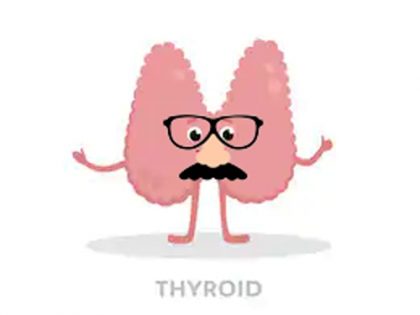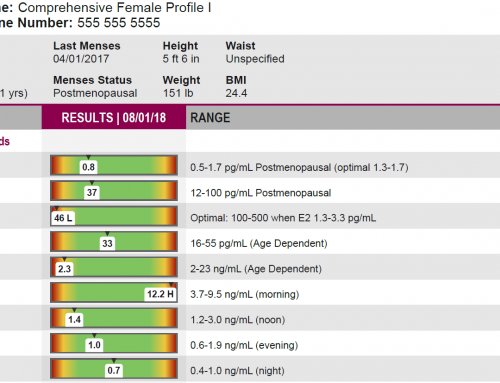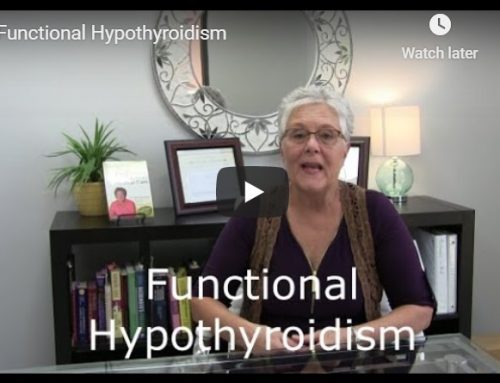by Dr. Tina Marcantel
 How is it possible to have normal thyroid test results when you have all the symptoms of low thyroid function?
How is it possible to have normal thyroid test results when you have all the symptoms of low thyroid function?
“Functional hypothyroidism” refers to a condition when the thyroid is producing a NORMAL amount of thyroid hormone but other hormone imbalances effectively STOP the thyroid molecules from functioning properly in the body. This condition is fairly common and often overlooked.
Many people recognize the signs of low thyroid (hypothyroidism) such as foggy brain, dry skin and hair, hair loss, fatigue, depression, weight gain, constipation, and hypersensitivity to cold. However, blood test results might show that everything appears normal. At this point, you might tend to look for other causes for the symptoms. But let’s explore this a little further.
If there are plenty of thyroid molecules in the bloodstream but they aren’t able to convert into the active form of thyroid in the cells to do their job, then the body reacts as though the thyroid isn’t producing those hormones.
What Causes Functional Hypothyroidism?
So what’s happening here?
An overproduction or an imbalance of certain other hormones in the body can interfere with how the thyroid hormones are working. For example, if a person is under a lot of stress, either physically or emotionally, the adrenal glands are probably releasing a lot of cortisol. This extra cortisol in the system can actually stop the conversion of thyroid hormones in the cells and keep them from working properly.
This can also be true in the case of estrogen dominance—a condition in which the estrogen hormone levels are too high in relation to the amount of progesterone in the system. The excess estrogen can interfere with the conversion and action of the thyroid hormone.
In this state of functional hypothyroidism, the body is exhibiting the symptoms of low thyroid even though the thyroid gland may be perfectly healthy.
Detection and Treatment
The first step to restoring health is to determine which, if any, hormones are out of balance. A combination of both blood and saliva lab tests and a careful examination of the symptoms by a knowledgeable medical professional can zero in on these imbalances.
The next step is to establish a protocol designed to bring those hormones into a healthy balance. That may mean finding and treating the root cause of the overproduction of stress hormones like cortisol. In the example of estrogen dominance, it may be as simple as using certain hormone supplements to bring things into balance.
Once we identify and address these hormone imbalances, the symptoms of hypothyroidism start to disappear without the need for thyroid medications.
Want more information on Functional Hypothyroidism? Watch Dr Marcantel’s video here!





